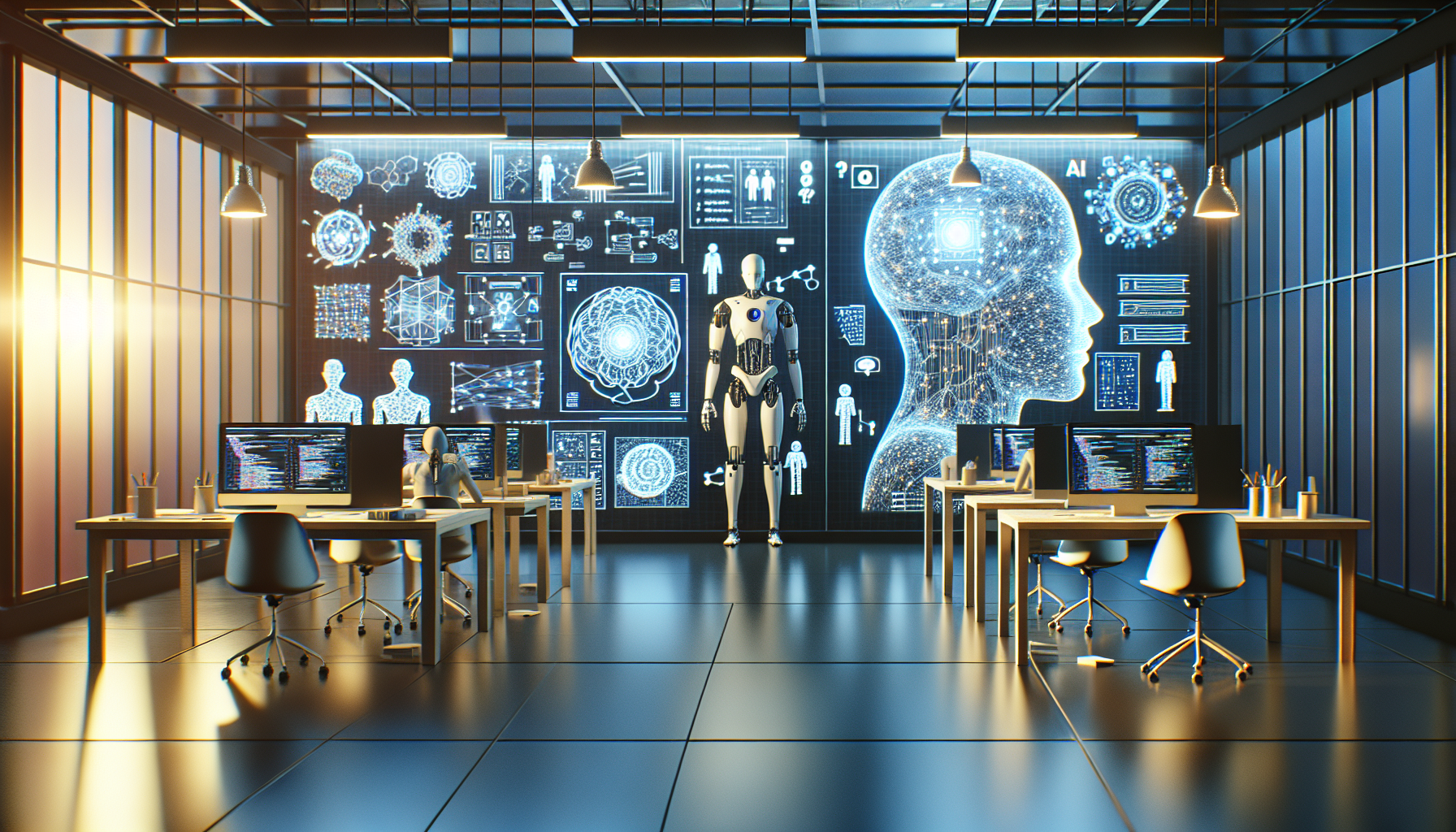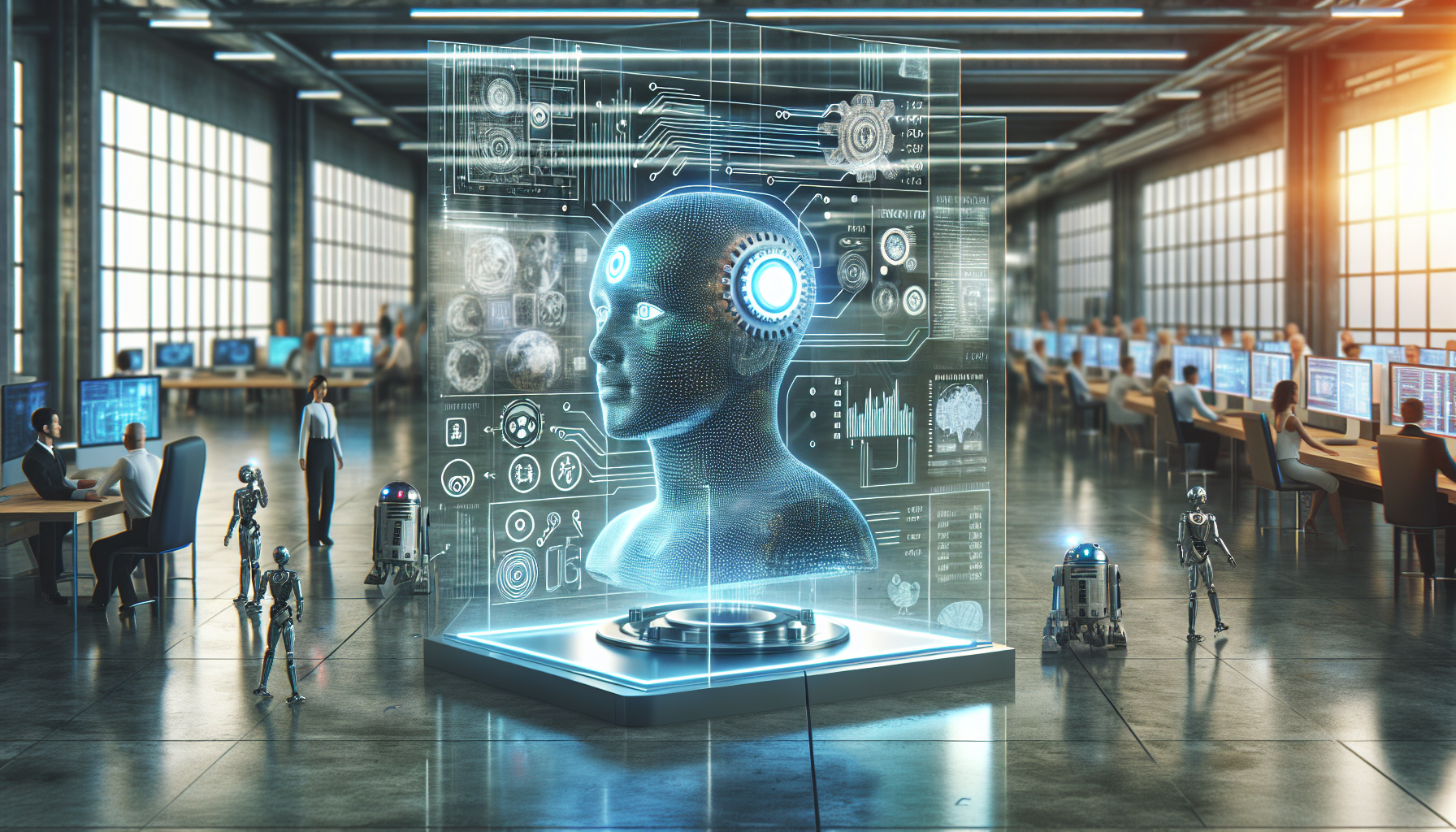
Cognitive Computing vs. Traditional AI: A Comparative Analysis of the Next Frontier in Artificial Intelligence
February 3, 2025
Artificial Intelligence (AI) has become an integral component of technological advancement, transforming industries and redefining the boundaries of innovation. Within this domain, cognitive computing emerges as a promising frontier, poised to redefine our interaction with machines. Cognitive computing, often perceived as a subset of AI, presents distinctive features that differentiate it from traditional AI models. Understanding these differences is crucial for grasping the potential impact of cognitive computing on various sectors.
At its core, cognitive computing seeks to emulate human thought processes in complex situations. This approach contrasts with traditional AI, which typically relies on algorithmic processing and predefined data sets. Cognitive computing systems are designed to learn and adapt, mimicking human cognitive functions such as reasoning, learning, and perception. This capability allows cognitive computing systems to process natural language and understand contextual nuances, providing a more human-like interaction.
One of the most significant distinctions between cognitive computing and traditional AI lies in their approach to problem-solving. Traditional AI systems are task-oriented, designed to execute specific tasks with high efficiency. These systems excel in areas where the rules are clearly defined and data is abundant. Machine learning models, for example, can analyze vast datasets to identify patterns and make predictions. However, they lack the flexibility to adapt to new contexts without extensive retraining.
In contrast, cognitive computing systems are inherently adaptive. They can adjust their strategies based on new information, making them particularly suited for dynamic environments where conditions change rapidly. This adaptability is achieved through advanced algorithms that allow systems to process unstructured data, such as written text or spoken language, in a manner akin to human understanding. For instance, a cognitive computing system can analyze a legal document and comprehend its implications, much like a human lawyer.
Another area where cognitive computing diverges from traditional AI is in human-computer interaction. Traditional AI often relies on structured inputs and outputs, requiring users to conform to specific formats. Cognitive computing, however, aims to bridge the gap between human and machine communication by understanding natural language and responding in a more intuitive manner. This capability enhances user experience and broadens the applicability of AI in areas such as customer service, healthcare, and education.
Healthcare, in particular, stands to benefit significantly from cognitive computing. Traditional AI models have been instrumental in diagnosing diseases and suggesting treatment plans based on historical data. However, cognitive computing systems can go a step further by integrating patient records, medical literature, and real-time data to provide personalized care options. This holistic approach enables healthcare providers to consider a wider array of factors, leading to more accurate diagnoses and tailored treatment plans.
In the realm of business, cognitive computing offers the potential to revolutionize decision-making processes. Traditional AI can analyze financial trends and optimize logistics, but cognitive systems can interpret the subtleties of market dynamics and consumer behavior. By understanding context and sentiment, cognitive computing can provide insights that go beyond numbers, helping businesses anticipate trends and respond proactively to market shifts.
Despite these advantages, the implementation of cognitive computing is not without challenges. The complexity of cognitive systems necessitates sophisticated infrastructure and substantial computational power. Additionally, ensuring the security and privacy of data processed by cognitive systems is paramount, as these systems often handle sensitive information.
Furthermore, ethical considerations arise as cognitive systems become increasingly autonomous. The ability to make decisions in uncertain situations raises questions about accountability and transparency. As these systems become more integrated into society, establishing clear guidelines and ethical frameworks will be essential to harness their potential responsibly.
As we stand on the brink of this new era in artificial intelligence, the question remains: how will cognitive computing reshape our world? Will it enhance human capabilities, or will it challenge our understanding of autonomy and decision-making? As cognitive computing continues to evolve, exploring these questions will be crucial in navigating its integration into our lives. This ongoing dialogue will define the role of cognitive computing in shaping the future of human-machine collaboration.


